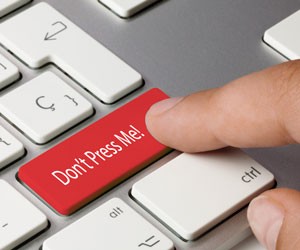A recent Psychology Today blog pointed out the importance of being self-assertive and the benefits it can bring.
We totally agree.
The author says being assertive leads to—among other benefits—less anxiety, a greater sense of agency, and better relationships.
Again, we agree.
But for many of us, the author’s tips for how to start being more assertive today are much, much more easily read than done. Especially for people who have not normally held a “power position” or authoritative role, or for those who were brought up to not complain, stir the pot, or open our mouths in adverse situations for fear of retaliation.
Should a person always feel free to speak up for themselves? Absolutely. Does anyone actually feel completely comfortable to do so? Not likely. Retaliation happens. At work, at home, in social groups. With respect to the author of the Psychology Today post, we’d like to add some strategies for being self-assertive while minimizing the potential of an adverse reaction.
Pretend It’s for a Friend or Loved One
Often, people who would fear speaking up for themselves would have much more courage if they were speaking on behalf of someone. Not being treated fairly at work? Pretend the poor treatment is happening to your best friend and find your voice.
Play the Odds
In many cases, as the author of the original post says, the reaction you get when speaking up and asserting yourself won’t be as bad as you anticipate. People are generally allowed to ask for days off. They are sometimes even expected to ask for raises. Most bosses/managers/persons in power roles have the ability to empathize, so, unless they have demonstrated otherwise in the past, give them the benefit of the doubt and have faith that it won’t be that bad.
That said . . .
Speak Up Sparingly
Be judicial when deciding what you can live with and what you feel compelled to change by speaking up. Ask yourself, “Is this the task you want to tackle?” Be aware of how often and why, but we hope you find your voice.
Everyone should feel empowered and worthy enough to advocate for themselves, but reality shows us this is not the case. To some people, saying, “Go assert yourself!” is akin to telling the mouse to go ask the cat to stop hunting him. But with this addendum to a solid post, we hope that all may feel just a little more emboldened to stand up and ask for what’s best for them—and ultimately, what’s going to be best for everyone.


